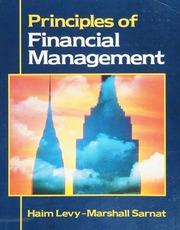Question
a 35 research-based paper in current Bluebook format that focuses on obtaining and discussing the information required by Role-Play Exercise 19.2, excluding the requirement to
a 35 research-based paper in current Bluebook format that focuses on obtaining and discussing the information required by Role-Play Exercise 19.2, excluding the requirement to include visual aids found in section 4. This paper should be an extensive analysis of the issues raised in sections 1-3, including applicable Virginia law. You must also include a biblical analysis of how serving your neighbor should motivate you when representing your client in a matter. The paper must include at least 3 references in addition to the course textbooks and the Bible. Your references must be appropriate in quality, quantity, and application to support all statements or contentions calling for support and the paper as a whole. The paper must also have a title page and tables of contents.
Role-Play Exercise 19-2 The Eviction
| The Players: | Dorothy Williams, the client |
| Terry Gibson, the client | |
| The attorney | |
| The paralegal |
Damian Fox owns and manages a 12-unit house on Pine Street. Fox contracted with Dorothy Williams and Terry Gibson by means of a document entitled, Apartment Sharing and Room Rental Lease Agreement to rent one of the apartments to them on a weekly basis beginning in March. The agreement described Fox as the landlord and Williams and Gibson as tenants.
The apartment consisted of one furnished room with a bed, dresser, cabinet, table, television, couch, refrigerator, and telephone. Fox provided a set of sheets, a pillow, a blanket, and a comforter, but Williams and Gibson were responsible for laundering the linens and obtaining any other linens they needed. No bathroom, running water, or kitchen facilities were supplied in the room, so Williams and Gibson shared a common bathroom and kitchen area with the other tenants on their floor. The kitchen area consisted of a microwave, toaster oven, and coffee machine, but the toaster oven and coffee machine were not always available. These common areas were cleaned and maintained by Fox, but Williams and Gibson were responsible for cleaning their room. The weekly rental included heat, electricity, cable television service, and local phone service. Although the rooms are rented on a weekly basis, Fox stated he attempts to rent to tenants who will stay for longer periods. A Certificate of Occupancy issued by the Citys Department of Building Inspection approved the property for residence as a lodging house.
By December, Williams and Gibson had fallen behind in their rent. Fox obtained a writ of possession utilizing the forcible entry and detainer procedure under state statute. Before Fox executed the writ, however, he reached an agreement with Williams and Gibson whereby Williams and Gibson were permitted to remain in the room, but agreed to continue paying their weekly rent with additional payments for the back rent due. By September of the following year, although Williams and Gibson had made some additional payments, they had also missed other payments and had fallen even further behind in the rent payments. Fox attempted to execute the writ of possession he had obtained the previous December, but Williams and Gibson were granted an injunction by the district court preventing Fox from executing on the writ, the court concluding that because rent was paid and accepted after the writ was issued, a new tenancy had been created.
One evening in October, without prior notice, Fox padlocked the door to Williams and Gibsons room while they were out. Included among the possessions that could not be accessed were Gibsons epilepsy medication and his identification to refill the prescription for the medication. As a result of being unable to access his medication, Gibson went to the emergency room twice within the next week for treatment of epileptic seizures.
Williams and Gibson would like injunctive relief and damages for, among other allegations, illegal eviction and intentional and negligent infliction of emotional distress. Fox has said that he wanted the rent due and incidental charges.
After the interview with Williams and Gibson, the attorney and paralegal have discovered that there is an issue with Foxs contention that his property qualified as a lodging house. If this is true, then Williams and Gibson may recover on their claim of illegal eviction. Williams would like to recover $1,000 damages for her claim of intentional infliction of emotional distress, and Gibson would like to recover $5,000 damages for intentional infliction of emotional distress. Fox wants $300 for unpaid back rent.
Step by Step Solution
There are 3 Steps involved in it
Step: 1

Get Instant Access to Expert-Tailored Solutions
See step-by-step solutions with expert insights and AI powered tools for academic success
Step: 2

Step: 3

Ace Your Homework with AI
Get the answers you need in no time with our AI-driven, step-by-step assistance
Get Started


